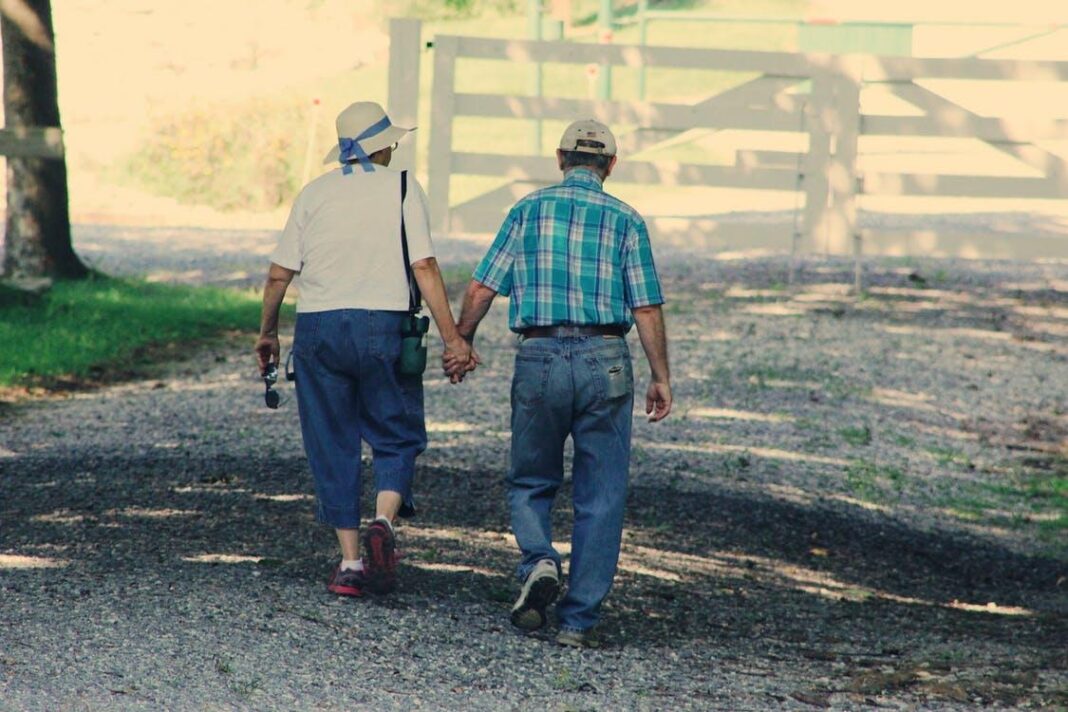Sadly, we don’t realize the significance of good health until we are reduced to relying upon others for help, even for a minute task. It holds true, especially for the elderly, who require guidance at every step.
As we grow old, our strength and stamina gradually decline, rendering us incapable of carrying out day-to-day tasks as we do in our youth.
Therefore, older individuals seek assistance from those in their surroundings to prevent injuries and comfortably spend the remainder of their lives.
Aside from the elderly being concerned about health, it is also the responsibility of every individual to ensure that the older ones are carefully looked after.
With age, the need for physical and emotional care grows, which only reaches the point of anxiety when these needs are unmet.
There is no denying that with each step forward, an individual’s psychology, behavioral pattern, and physical strength change, thus making it necessary to offer as much care and support as possible.
Other than the ethical point of view, looking after your loved ones is also a golden opportunity to learn valuable life lessons that perhaps will aid you at some point in your life. We tend to forget that our elders might have weathered storms that we possibly can never imagine.
You never know if the ordeal your loved one faced during their lifetime someday ends up as your source of guidance in desperate times.
Above everything, your loved one needs all the care, love, and support they can get. So you can either get help for a loved one or accompany them to ward off their loneliness.
To become a pillar of support for your loved one in old age, check out the guide mentioned below.
1. Give Space
One of our parents’ common fears is that they gradually lose control of every aspect of their life, especially the decisions surrounding their health and daily tasks.
It hurts their well-being, so senior citizens must be given the necessary space to get their thoughts in order or embrace peace.
For instance, you work alongside your parents instead of doing the task to retain their sense of independence.
Although, no doubt, the task can be completed in far less time done by you, letting your loved one take the lead boosts their self-esteem.
If your loved one is not up for the task, it’s up to you as a caregiver forum to understand their mental condition, which declines with time.
2. Spend Quality Time
There is no denying that loneliness is one of the biggest fears older people have and the way to overcome that fear is by spending as much quality time as possible with them.
Though you may not have extra time on your hands due to your commitments, try spending it with your aging parents when you do have the time. Even a little attention goes a long way in helping your parents feel less lonely.
Your relationship with your loved one becomes more harmonious when you prioritize the relationship instead of squeezing it into a hectic schedule. Our aging parents need time more than anything, and giving them that is one of the greatest gifts they will ever have.
Spending time together improves interpersonal relationships and, most importantly, you start seeing your parents from a different perspective. You are never old to learn a thing or two from your parent, regardless of age.
It is common to miss out on a lot of the parent-child relationship due to a child’s hot-headedness as a teenager.
Reaching out to your parents in old age helps mend broken relationships and also allows you to make the remainder of the days memorable.
3. Ensure well-being
Health is the most critical aspect of aging that shouldn’t be compromised. As a responsible individual, you must ensure the well-being of your loved one at all times.
If your parents are at the crossroads of behaving recklessly, endangering their safety, and neglecting themselves, it is best that you immediately step in to prevent consequences.
Older individuals are often stubborn and sometimes fail to pay attention to their health. Take charge of the elderly’s best interest, and be forceful even if the circumstance demands.
A few diseases like Alzheimer’s or dementia affect an individual’s memory and impact their abilities, preventing them from performing routine tasks.
Although these individuals might protest when you step in to help them, it saves your loved ones from endangering themselves.
Your goal is to ensure your parents’ safety and health and if that means taking over the tasks and doing them accordingly, then do so.
4. Be Respectful
No matter how old your parents are, never forget that they have feelings that can easily get crushed when the boundary of respect is crossed. Irrespective of age, the parent-child relationship dynamics remain the same.
Undoubtedly, looking after elders is frustrating, especially if they are stubborn; they still deserve respect and dignity.
There is no definitive time when death might come knocking at the door; keeping that in mind, you wouldn’t want the relationship with your parents to turn sour. So, find ways to understand them and, most importantly, be respectful towards them.
Widen your circle of understanding by remembering when your parents were patient with you when you had tantrums and were stubborn. Being respectful also means letting them do things their way; otherwise, the more you insist on taking over the control, the more resistance you will face.
5. Promote activity
Aging individuals feel more isolated when they stop doing physical activity. Encourage your parents to be physically active because it improves overall mood and physical and mental health. Caring for older adults ultimately means that you are keeping chronic illnesses at bay.
Although the activities once your parent enjoyed aren’t easy when they approach their 60s or beyond, it doesn’t mean they have to end. With a little dash of creativity, activities or exercise change slightly to keep your parents engaged.
Keep in mind before developing an exercise regimen, consult a doctor. Start with a walk around the neighborhood, and breathe fresh air. Additionally, many park districts and senior centers offer exercises tailored to older adults.
Encourage your aging parents to visit these districts or classes as they improve health and foster friendships.
Conclusion
We, humans, understand the value of good health only when we are nearing the end of time. Older adults don’t realize that health is equally important as it is in youth.
Though with time, a lack of energy and strength impacts the elderly’s abilities to do things independently, it is up to you to ensure that your parent’s needs are addressed timely.
No doubt, sometimes it is challenging but offering support and care to your loved one makes them happy and less stressed, which is what every individual wants for their parents.















